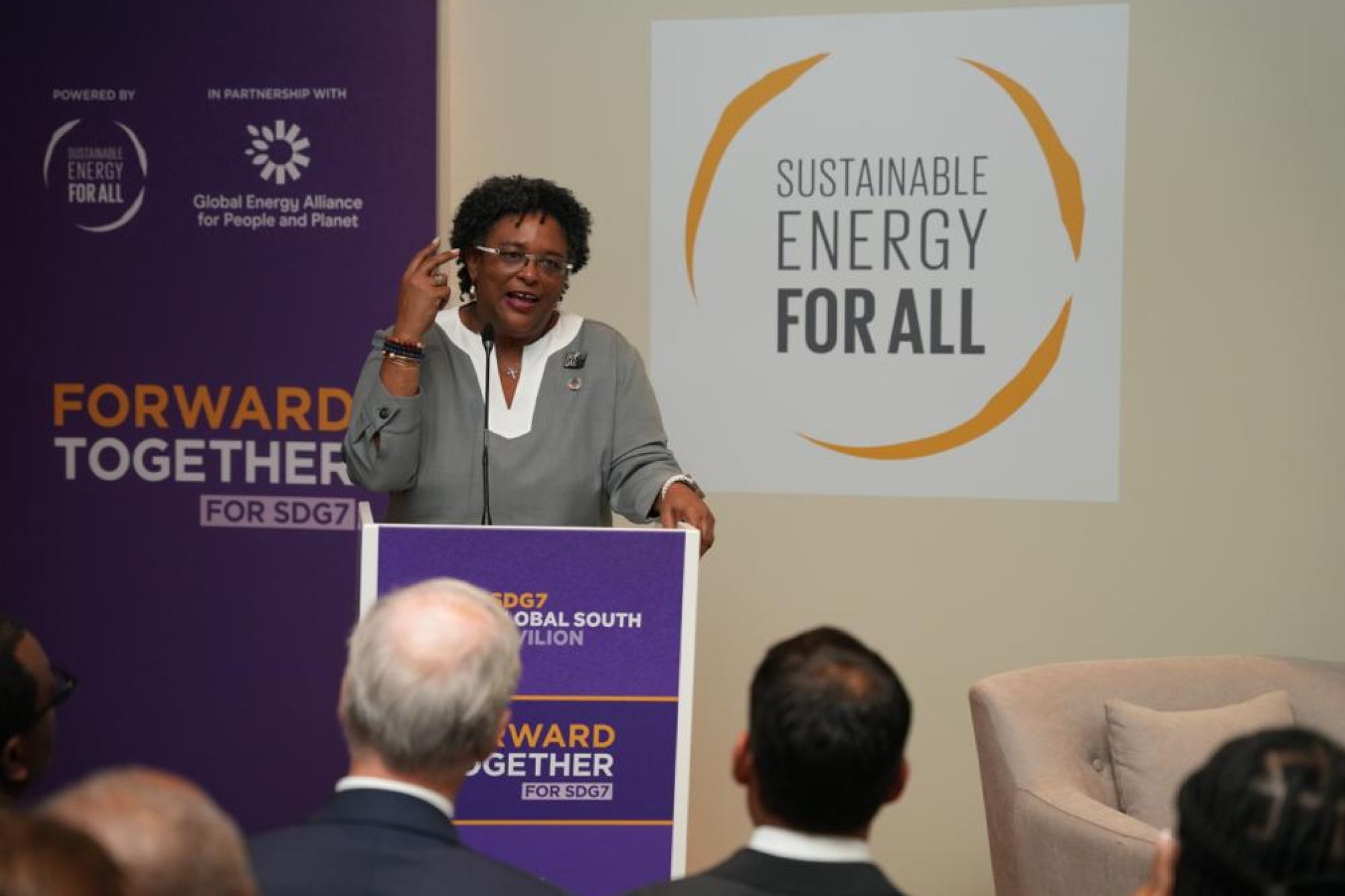India joins global initiative to achieve 5 GW battery energy storage systems by 2024
By EPR Magazine Editorial December 27, 2023 4:20 pm IST
By EPR Magazine Editorial December 27, 2023 4:20 pm IST

Collaborative effort led by GEAPP aims to boost renewable energy integration and ensure grid reliability worldwide.
During the 2023 United Nations Climate Change Conference (COP28), India officially joined the Battery Energy Storage Systems (BESS) Consortium, an initiative led by The Global Leadership Council (GLC) under the umbrella of the Global Energy Alliance for People and Planet (GEAPP). By becoming a part of the BESS Consortium, India positions itself as one of the pioneering nations committed to a collaborative endeavor aimed at securing 5 gigawatts (GW) of BESS commitments by the close of 2024.
India has undertaken significant measures to facilitate the integration of BESS, a critical component in achieving its objectives of energy security and ensuring access to reliable, round-the-clock energy for all. In September of this year, the Government of India sanctioned a scheme dedicated to the development of 4,000 megawatt-hours (MWh) of BESS projects by the year 2030-31. The scheme includes financial support of up to 40 percent of the capital cost provided to developers in the form of Viability Gap Funding (VGF). This initiative is anticipated to reduce the costs associated with BESS infrastructure projects and encourage the formation of public-private partnerships.
Commenting on the announcement, Saurabh Kumar, Vice President – India, GEAPP, said, “The BESS Consortium is an example of GEAPP’s firm belief in the power of collaborative actions and partnerships to achieve people-positive energy transition. The expansion of BESS is crucial to bring down the current high cost to resolve the issue of intermittency and lead to accelerated RE integration. It would also help fast-track innovative regulations that will unlock the value streams on batteries and provide much-needed balancing support to the grid. This would positively impact the demand for RE, which is imperative for a Net Zero future.”
During last month’s Energy Transition Dialogues (TETD) organised by GEAPP in New Delhi, a comprehensive report titled “Powering Progress: Batteries for Discoms – A Market Action Report on Accelerating Battery Energy Storage in India” was released. This report, a collaborative effort between GEAPP and RMI, revealed that approximately 42 gigawatts (GW) or 208 gigawatt-hours (GWh) of Battery Energy Storage Systems (BESS) would be necessary to integrate 392 GW of Variable Renewable Energy (VRE) by 2030, comprising 100 GW of wind and 292 GW of solar. The report emphasised that the growing integration of VRE resources, particularly solar and wind, is a key driver for the adoption of grid storage.
During the event, GEAPP also announced the expansion of its Battery Energy Storage System (BESS) project in India, aiming to achieve a 1 GW target for DISCOMS under BESS by 2026. IndiGrid, India’s first power sector infrastructure investment trust, was granted its initial BESS project to design, supply, test, install, commission, operate, and maintain a 20 MW/40 MWh facility in Delhi. GEAPP aims to provide concessional debt financing for 70% of the total capital investment and technical assistance for the project. This implementation represents a novel approach as many similar projects have faced obstacles due to high costs and regulatory bottlenecks. GEAPP plans to continue working on a scale-up plan with DISCOMs, aiming to achieve a target of 200 MW by offering technical assistance and concessional funding.Barbados, Belize, Egypt, Ghana, Kenya, Malawi, Mauritania, Mozambique, Nigeria, and Togo are among the other first-mover countries committed to the BESS Consortium, with Indonesia expressing strong interest. To address the estimated 400 GW of renewable energy needed to alleviate energy poverty by 2030 and save a gigaton of CO2, 90 GW of storage capacity must be developed. The BESS Consortium’s initial goal of 5 GW will serve as a roadmap for achieving the remaining capacity by 2030.
Battery Energy Storage Systems play a crucial role in enhancing grid reliability and accommodating the variability of renewable energy sources required for economic development. In many instances, a combination of BESS and renewables is already more cost-effective than fossil fuel alternatives. The BESS Consortium, a multi-stakeholder partnership, is set to ensure these BESS benefits transform energy systems in low- and middle-income countries (LMICs). The Consortium is progressing towards meeting its target of securing 5 GW of BESS commitments by the end of 2024 and deploying them by the end of 2027.
First-mover countries in the BESS Consortium will receive support from resource partners, including the African Development Bank (AfDB), the World Bank, Asian Development Bank (ADB), Inter-American Development Bank (IDB), the Agence Française de Développement (AFD), German Agency for International Cooperation (GIZ), RMI, Africa50, Masdar, Infinity Power, COP28 Presidency, AMEA Power, National Renewable Energy Laboratory (NREL), Net Zero World, and Sustainable Energy for All (SEforALL). Additional partners and countries are expected to join.
We use cookies to personalize your experience. By continuing to visit this website you agree to our Terms & Conditions, Privacy Policy and Cookie Policy.